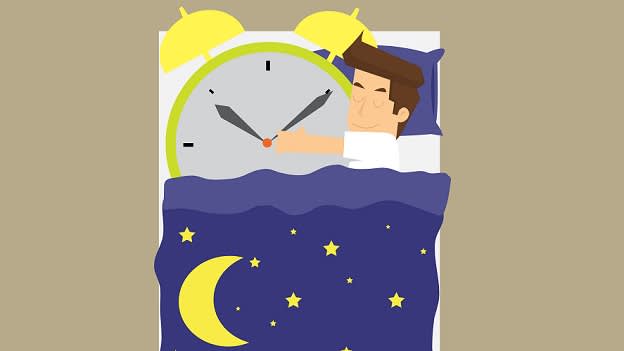Sleep for 8 hours a day & be productive like Jeff Bezos

Do you know that if you remain awake for 17-19 hours a day, your individual performance on several tasks is equal to a person with 0.05% of alcohol in the system? Yes, there are countries in this world which don’t allow you to drive if the alcohol content in your blood is 0.02%. Imagine what happens to your work. Sleeping for 4-5 hours regularly impairs your brain to misinterpret various cues of your colleagues at work. Studies also show you react negatively and the tone of your voice also changes if you are sleep deprived and continue to work.
A report published by McKinsey Quarterly in 2016 titled ‘The organizational cost of insufficient sleep’, discusses “that a good night’s sleep leads to new insights... Likewise, an afternoon nap has been found to aid creative problem solving: subjects who took a nap after struggling on a video-game problem were almost twice as likely to solve it as subjects who had remained awake. Other research has established that creative thinking is especially likely to take place during dream sleep, enhancing the integration of unassociated information and promoting creative solutions.”
The Report also quoted a research by A M Williamson and Anne-Marie Feyer, ‘Moderate sleep deprivation produces impairments in cognitive and motor performance equivalent to legally prescribed levels of alcohol intoxication,’ Occupational and Environmental Medicine which says that “after roughly 20 hours of wakefulness, the person’s performance equals that of someone with a blood-alcohol level of 0.1 percent, which meets the legal definition of drunkenness in the US.”
The People Matters and Truworth Wellness Study, released at the Total Rewards Conclave last February revealed the gap between what companies think they should be focusing on and what they are actually doing or initiating. 90% of the respondents to the study agreed that investing in wellness has an impact on productivity and engagement but at the same time, they also mention the top 2 challenges encountered access to funds from top management and the ability to measure ROI.
Adequate sleep is the new mantra for many corporates now. Aetna, an American Health care company pays its employees up to $500 a year if they can prove that they sleep for more than 7 hours a day. Aetna Chairman and CEO Mark Bertolini said, "Being present in the workplace and making better decisions has a lot to do with our business fundamentals. You can't be prepared if you're half-asleep.” He also said that he has the numbers to back-up his assertion that better sleep can lead to bigger profits.
Arianna Huffington, co-founder and editor-in-chief of The Huffington Post, who wrote a book, ‘The Sleep Revolution’ talks about the about the importance of sleep and also mentions the names of very successful business leaders who ensure they get about 8 hours of sleep daily. Leaders who agreed that they get ‘enough’ sleep are Hootsuite CEO Ryan Holmes, Amazon CEO Jeff Bezos, venture capitalist Marc Andreessen, Eric Schmidt, Chairman of Alphabet, and Microsoft CEO Satya Nadella.
Hootsuite employees have ‘nap cabins’ and its CEO Ryan Holmes reminds his employees about the importance of power-naps. In his blogpost on LinkedIn, Holmes writes, “It’s not worth depriving yourself of sleep for an extended period of time, no matter how pressing things may seem. A good metaphor is running a marathon versus a sprint. In your job, you can sprint from time to time, but long-term success depends on maintaining a marathoner’s steady gait.” Similarly, at Amazon Headquarter Seattle, employees do get the ‘nap’ room benefit since its CEO Jeff Bezos believe in the ‘power of good sleep’. Jeff Bezos himself, reports Huffington Post, sleeps regularly for 8 hours.
Not just these two, but all the successful organizations are slowly internalizing the need for proactive employees – which means employees need that particular hour of rest/sleep. Marriott Hotels, Google, Nike are a few more of such examples. The belief that more hours you put in at work will resolve all challenges is slowly fading to a much nature-based routine. Emphasis has been on how to synthesize our natural habits into professional ones. The McKinsey report says that about 70% of the leaders in our survey said that sleep management should be taught in organizations, just as time management and communication skills are now.
Duke University was called to do a study on Aetna’s wellness program effectiveness, which includes yoga, meditation, and also sleep. In an interview, Bertolini said he has seen "69 minutes more a month of [worker] productivity on the part of us just investing in wellness and mindfulness." He added, "If we can make … business fundamentals better by investing in our people, then that's going to show up in our revenue," he continued. "It's going to show up in our bottom line and the Street's confidence that we can do it quarter, after quarter, after quarter; year after year."











